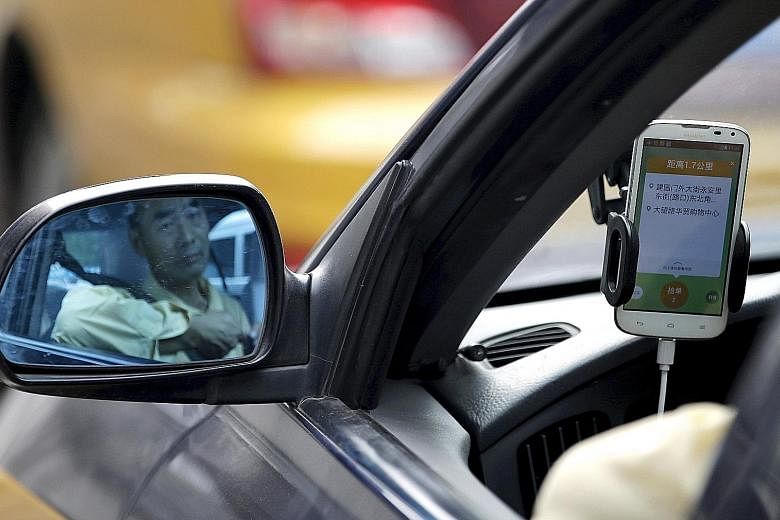Regulating taxi and ride-hailing services is proving to be an "unprecedented challenge" for China, underscoring the difficulties it faces in pushing e-commerce as a new driver for its slowing economy.
Transport Minister Yang Chuantang said this was why the government has not finalised regulations, despite pledging reforms a year ago, and is studying how cities like Singapore manage the sector.
China's regulators are facing the same dilemma that many other countries have in needing to strike a balance between popular car-hailing apps such as Uber and Didi Kuaidi while placating cabbies and taxi companies upset by unlicensed drivers muscling in on their turf.
While it is illegal in China for private cars to operate as taxis, enforcement is patchy and many Chinese have embraced ride-hailing services, which are often cheaper and more convenient.
"Managing the sector may not seem like a big problem but... due to restrictive mindsets and entrenched interests, the challenge of reforms is unprecedented," Mr Yang told reporters on the sidelines of the annual legislative session.
Five months have passed since draft rules were announced last October to legalise the ride-hailing industry and improve taxi services.
The proposal requires ride-hailing operators to use commercially registered cars and drivers, while allowing city governments to limit permits.
These measures, however, go against the business model of signing up private car owners and matching them with drivers.
Analysts say they could deal a blow to the effectiveness and success of ride-hailing apps.
Part of the country's reform plan involves improving the services of its 1.4 million taxis and loosening regulations to let them compete with ride-hailing services.
But there are other important considerations, noted Mr Liu Xiaoming, director-general of transport management at the Transport Ministry.
In bigger cities, for instance, having more taxis might add to the traffic jams they are already facing, when there is adequate public transport, Mr Liu said yesterday at the same press conference.
"In smaller cities... where public transport cannot cover every area, opening up the taxi sector can be considered," he said.
The stakes for these transport reforms are high, with industry players betting that the ride-hailing market here will become the biggest in the world.
Market leader Didi Kuaidi, backed by Chinese tech giants Tencent and Alibaba, estimates that it will be worth US$50 billion (S$68.9 billion) by 2020.
Mr Yang said the authorities were still "revising and adjusting" the details of the new regulations, without giving a timetable for their introduction. He acknowledged that the public welcomed ride-hailing services, adding that he himself had used them before.
He added that the bottom line of its regulations was to ensure the safety of the public and sustainability of the public transport system. To that end, he criticised the massive subsidies that ride-hailing companies have ploughed into the sector to secure market share.
"The subsidies provided by some companies are a short-term move to grab market share and pose unfair competition to the traditional taxi industry in a certain period of time," he said.
"In the long run, (they) will harm the healthy and sustainable development of the market."

